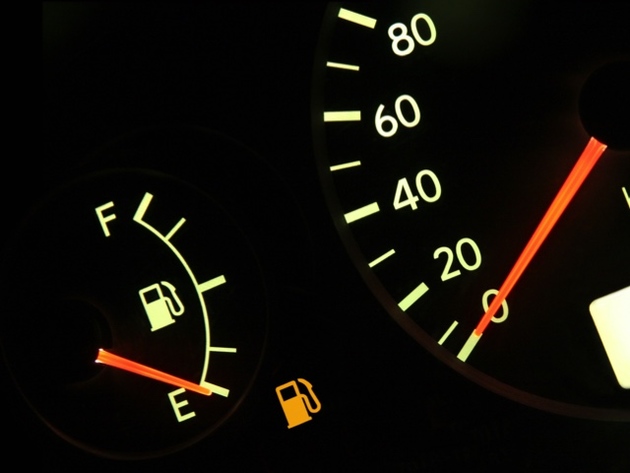
It’s a humbling, maybe even humiliating experience when your car runs out of gas.
Having to walk to a gas station, trusting there’s a gas can that you can borrow, ought to be lesson enough not to let it happen again.
Yet you do, or come darn close, more than once. You’re stuck in highway traffic, the low-fuel light staring you in the face as you sweat it out. Or you’re winding through the mountains of western Pennsylvania, hoping against hope that there’s a convenience store just around the next bend.
Running on empty is bad for one’s ego, but that’s not the totality of possible negative outcomes.
Consumer Reports notes that “gasoline acts like a coolant for the electric fuel-pump motor, so when you run very low, this allows the pump to suck in air, which creates heat and can cause the fuel pump to wear prematurely and potentially fail.”
The repair cost could be a couple hundred dollars. What’s more, dirt in the fuel tank could block the fuel filter, resulting in another expense.
Keep at least one-quarter full
Running out of gas also can be dangerous, stranding you in the middle of nowhere or causing the car to stop suddenly in traffic. These are bad enough on a nice day, imagine in foul weather.
During a weather emergency, gas stations could lose power, which would make it impossible to fill your tank. That’s presuming the station even had gas if, for example, evacuation fears prompted a run on the station’s inventory.
For these reasons, experts recommend keeping your gas tank at least one-quarter to one-half full. To avoid running out of gas, Consumer Reports also offers these tips:
• Fill up before a long trip or before going to work as you could get stuck in traffic and have a longer ride than anticipated;
• Don’t rely on your car to tell you how many miles are left, as those range numbers can run down quickly depending on how you drive;
• If cost is a factor, consider online tools or smart phone apps that can tell you where to find the cheapest gas near your home.
Another good idea is to enroll in a roadside assistance program, often available as part of your auto insurance policy, that you could call if you run out of gas.
Which is a good reminder not to let your smart phone run out of gas, so to speak, either.
